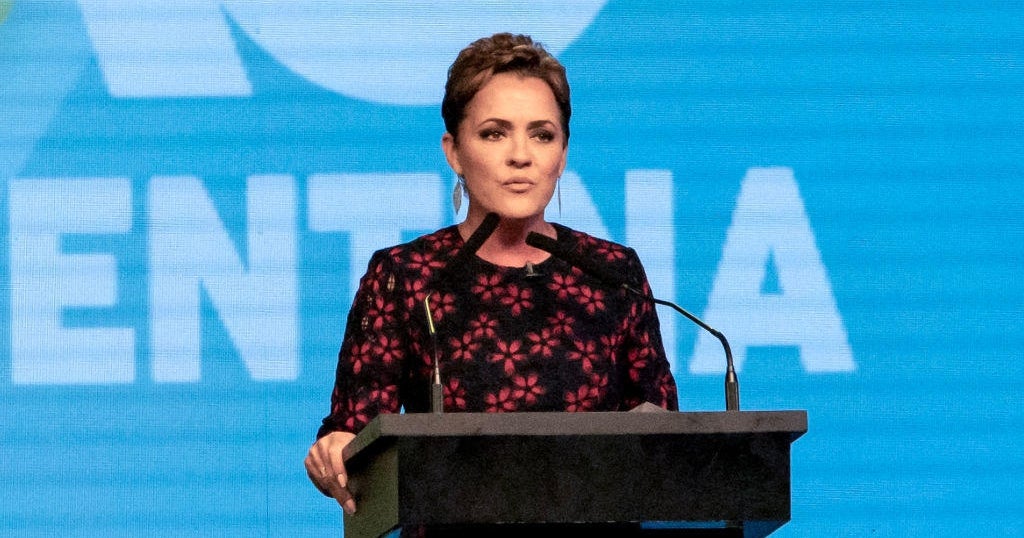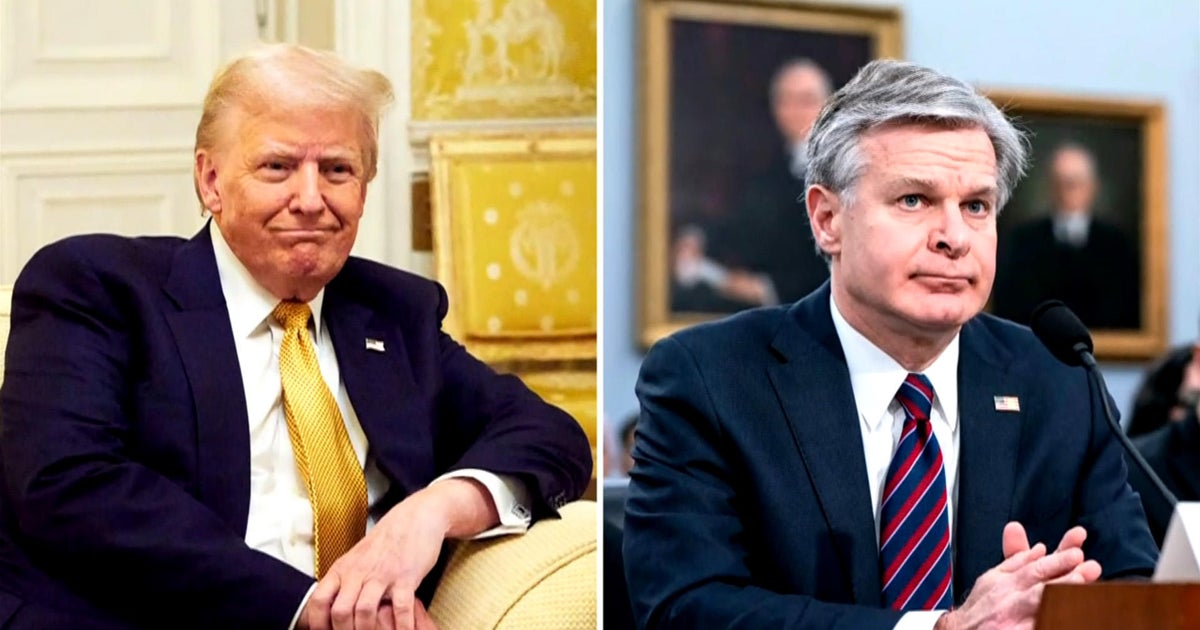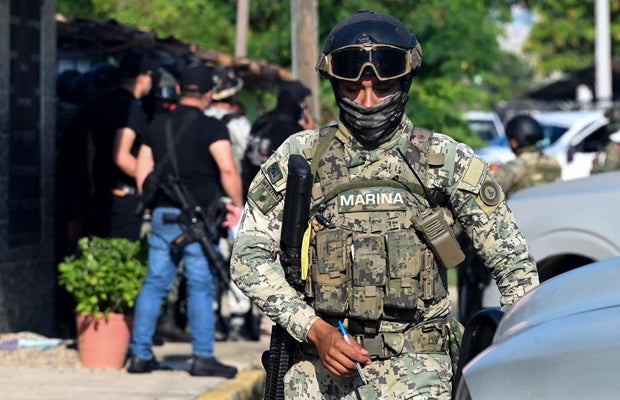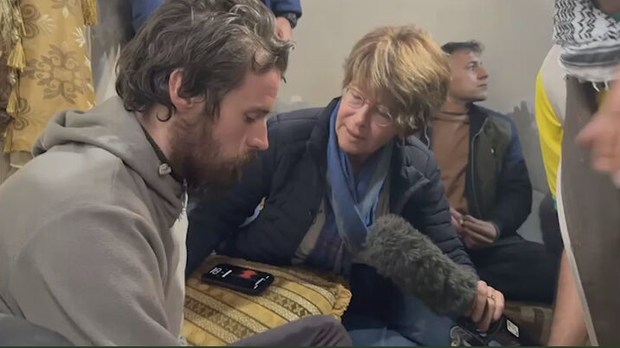CBS News
President-elect Trump’s Cabinet selections court Senate votes

Watch CBS News
Be the first to know
Get browser notifications for breaking news, live events, and exclusive reporting.
CBS News
Judge shot dead in his car outside courthouse in resort of Acapulco

A judge was shot dead Wednesday in Mexico’s once-thriving beach city of Acapulco, local media and the state prosecutor’s office said.
Local press identified the slain judge as Edmundo Roman Pinzon, president of the Superior Court of Justice in Guerrero state, saying he was shot at least four times in his car outside an Acapulco courthouse.
The southern state of Guerrero is one the areas hardest hit in Mexico by violence linked to organized crime, and has seen a string of deadly attacks this year.
In October, the mayor of the state capital Chilpancingo was killed and decapitated just days after taking office. Days later, four mayors asked federal authorities for protection.
Weeks later, armed clashes between alleged gang members and security forces left 19 people dead in the state. Last month, a dozen dismembered bodies were discovered in vehicles in Chilpancingo.
Acapulco, the state’s most populous city, was once a playground for the rich and famous, but has lost its luster over the last decade as foreign tourists have been spooked by bloodshed that has made it one of the world’s most violent cities.
On Wednesday, the Guerrero state prosecutor’s office said in a statement that it was “investigating the crime of aggravated homicide against Edmundo N” in line with the usual practice of not giving full names.
Wednesday’s killing comes two days after assailants in the Gulf coast state of Veracruz shot to death a federal congressman. Rep. Benito Aguas Atlahua was a member of the Green Party, an ally of the ruling Morena party. Investigators have yet to publicly identify any possible motive in Monday’s slaying.
The judge’s murder comes just over a week after President Claudia Sheinbaum led a meeting of the National Public Security Council in Acapulco, with state governors in attendance.
FRANCISCO ROBLES/AFP via Getty Images
Spiraling violence, much of it linked to drug trafficking, has seen more than 450,000 people murdered in Mexico since 2006, when the government launched an offensive against organized crime.
Sheinbaum, who took office in October as Mexico’s first woman president, has ruled out launching a new “war on drugs,” as the controversial program was known.
She has pledged instead to stick to her predecessor Andres Manuel Lopez Obrador’s “hugs not bullets” strategy of using social policy to address the causes of crime.
Last year, 1,890 murders were recorded in Guerrero.
Violence in Guerrero reached such unprecedented levels that earlier this year, Roman Catholic bishops announced they had helped arrange a truce in another part of the state between two warring drug cartels.
In June, at least three politicians in Guerrero were killed. Acacio Flores, who represents Malinaltepec, was killed just days after the killing of Salvador Villalba Flores, another mayor from Guerrero state elected in June 2 polls. Earlier in the month, a local councilwoman was gunned down as she was leaving her home in Guerrero.
Her murder came a few days after the mayor of a town in western Mexico and her bodyguard were killed outside of a gym, just hours after Sheinbaum won the presidency.
CBS News
Biden commutes roughly 1,500 sentences and pardons 39 people, most ever in a single day
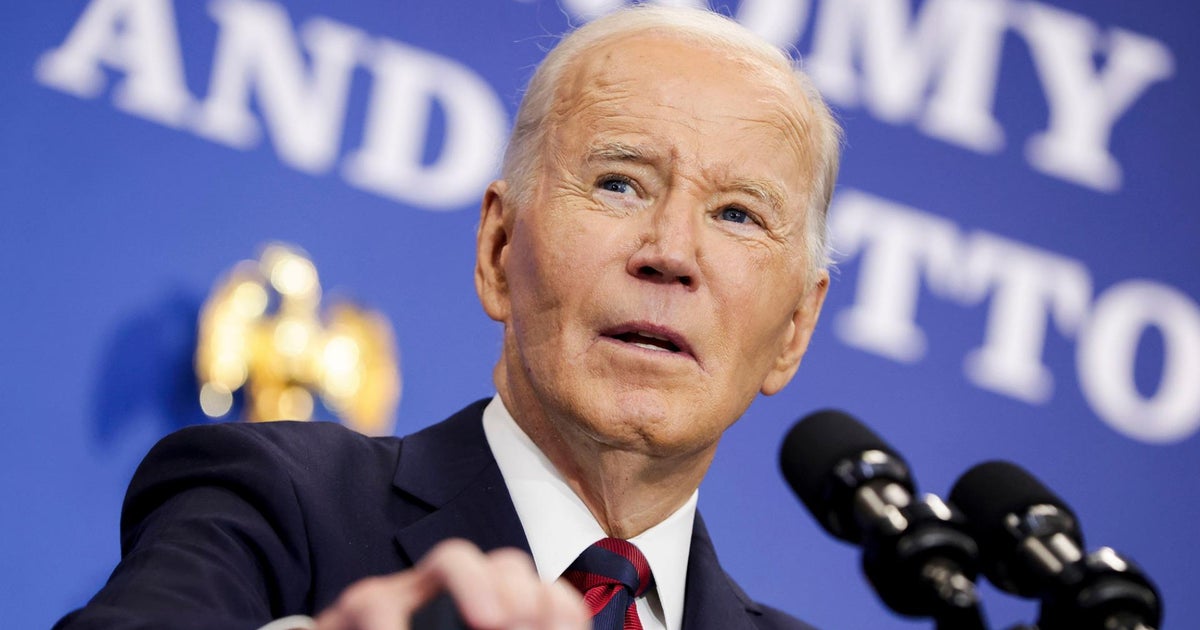
President Joe Biden is commuting the sentences of nearly 1,500 people who were released from prison and placed on home confinement during the coronavirus pandemic and is pardoning 39 Americans convicted of nonviolent crimes. It’s the largest single-day act of clemency in modern history.
The commutations announced Thursday are for people who have served out home confinement sentences for at least one year after they were released. Prisons were uniquely bad for spreading the virus and some inmates were released in part to stop the spread. At one point, 1 in 5 prisoners had COVID-19, according to a tally kept by The Associated Press.
“These actions represent the largest single-day grant of clemency in modern history,” the White House said.
Mr. Biden said he would be taking more steps in the weeks ahead and would continue to review clemency petitions. The second largest single-day act of clemency was by Barack Obama, with 330, shortly before leaving office in 2017.
“America was built on the promise of possibility and second chances,” Mr. Biden said in a statement. “As president, I have the great privilege of extending mercy to people who have demonstrated remorse and rehabilitation, restoring opportunity for Americans to participate in daily life and contribute to their communities, and taking steps to remove sentencing disparities for non-violent offenders, especially those convicted of drug offenses.”
The clemency follows a broad pardon for his son Hunter, who was prosecuted for gun and tax crimes. Mr. Biden is under pressure from advocacy groups to pardon broad swaths of people, including those on federal death row, before the Trump administration takes over in January. He’s also weighing whether to issue preemptive pardons to those who investigated Trump’s effort to overturn the results of the 2020 presidential election and are facing possible retribution when he takes office.
Those pardoned Thursday had been convicted of nonviolent crimes such as drug offenses and turned their lives around, White House lawyers said. They include a woman who led emergency response teams during natural disasters; a church deacon who has worked as an addiction counselor and youth counselor; a doctoral student in molecular biosciences; and a decorated military veteran.
The president had previously issued 122 commutations and 21 other pardons. He’s also broadly pardoned those convicted of use and simple possession of marijuana on federal lands and in the District of Columbia, and pardoned former U.S. service members convicted of violating a now-repealed military ban on consensual gay sex.
Rep. Jim McGovern, D-Mass., and 34 other lawmakers are urging the president to pardon environmental and human rights lawyer Steven Donziger, who was imprisoned or under house arrest for three years because of a contempt of court charge related to his work representing Indigenous farmers in a lawsuit against Chevron.
Others are advocating for Mr. Biden to commute the sentences of federal death row prisoners. His attorney general, Merrick Garland, paused federal executions. Mr. Biden had said on the campaign trail in 2020 that he wanted to end the death penalty but he never did, and now, with Trump coming back into office, it’s likely executions will resume. During his first term, Trump presided over an unprecedented number of federal executions, carried out during the height of the pandemic.
More pardons are coming before Mr. Biden leaves office on Jan. 20, but it’s not clear whether he’ll take action to guard against possible prosecution by Trump, an untested use of the power.
“My administration will continue reviewing clemency petitions to advance equal justice under the law, promote public safety, support rehabilitation and reentry, and provide meaningful second chances,” Mr. Biden said in a statement.
The president has been taking the idea seriously and has been thinking about it for as much as six months – before the presidential election – but has been concerned about the precedent it would set, according to people familiar with the matter who spoke to The Associated Press on condition of anonymity to discuss internal discussions.
But those who received the pardons would have to accept them. New California Sen. Adam Schiff, who was the chairman of the congressional committee that investigated the violent Jan. 6 insurrection, said such a pardon from Mr. Biden would be “unnecessary,” and that the president shouldn’t be spending his waning days in office worrying about this.
A president has the power to both pardon, in which a person is relieved of guilt and punishment, or commute a sentence, which reduces or eliminates the punishment but doesn’t exonerate the wrongdoing. It’s customary for a president to grant mercy at the end of his term, using the power of the office to wipe away records or end prison terms.
Before pardoning his son, Mr. Biden had repeatedly pledged not to do so. He said in a statement explaining his reversal that the prosecution had been poisoned by politics. The decision prompted criminal justice advocates and lawmakers to put additional public pressure on the administration to use that same power for everyday Americans. It wasn’t a very popular move; only about 2 in 10 Americans approved of his decision, according to a poll from The Associated Press-NORC Center for Public Affairs Research.
“The President’s categorical approach to clemency has also inspired leaders across the country to take similar action,” the White House said Thursday. “Over ten states and localities, including Maryland and Massachusetts, have issued categorical clemency for marijuana convictions, impacting hundreds of thousands of people and allowing individuals to move past their convictions and move on with their daily lives.”
CBS News
American man identifying himself as Travis Timmerman found in Syria after being freed from prison

An American man identifying himself as Missouri native Travis Timmerman was found Thursday in Syria after being freed from a prison earlier in the week, when longtime dictator Bashar al-Assad was forced from power by a shock rebel offensive.
Timmerman told CBS News senior foreign correspondent Elizabeth Palmer that he had been trying to make his own way out of the country after walking out of the prison where he’d been held for more than half of a year. He said he was detained upon entering Syria seven months ago after spending a month in neigboring Lebanon.
Timmerman said two men armed with AK-47s broke his prison door down Monday with a hammer.
“My door was busted down, it woke me up,” Timmerman said. “I thought the guards were still there, so I thought the warfare could have been more active than it ended up being… Once we got out, there was no resistance, there was no real fighting.”
CBS News
Timmerman said he left the prison with a large group and started walking away. He said he had been trying to head toward Jordan.
He said he “had a few moments of fear,” when he left the prison, and hadn’t really processed that he was free.
“I still haven’t really thought about that. I’ve been more worried about finding a place to sleep each night since then,” he told CBS News. So I’ve been working, really.”
Timmerman said he hadn’t been afraid to approach people to ask for help or a place to sleep at night on his journey.
“They were coming to me, mostly,” Timmerman said, adding that he’d spoken with his family three weeks ago, through a phone that he had while in prison. He said he had been allowed to use it.
“I’m feeling well. I’ve been fed and I’ve been watered, so I’m feeling well,” Timmerman said.
contributed to this report.



